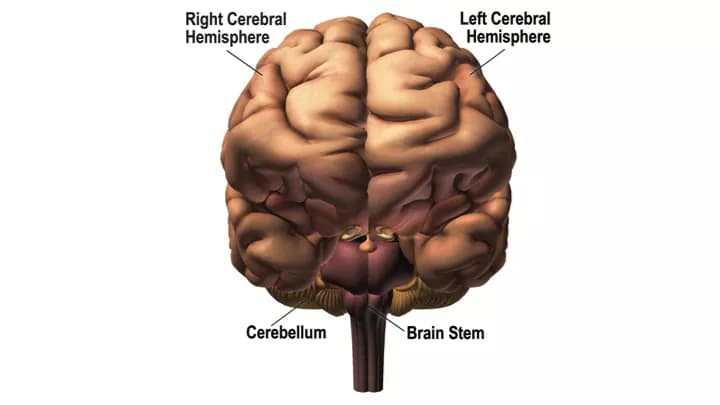
The Cerebellum: Big Roles in Autism, Schizophrenia, Thought and Emotion for The “Little Brain?”
The cerebellum, also called the “little brain,” is located at the back of the brain. The cerebellum occupies approximately 10% of the brain’s volume. However, it contains over 50% of the neurons in the brain. Thus far, the cerebellum has been associated with motor functions, balance, and voluntary movement. It is known that damage to or dysfunction of the cerebellum could lead to signs and symptoms such as ataxia (wide-based gait), hypotonia (decreased muscle tone), dysmetria (lack of control in movement range), tremors, etc.
Several scientists from various disciplines have toiled over decades to unravel the delicate functions of cerebellum other than its role in fine motor functions. The results show that the cerebellum has connections to areas of the brain that are involved in using language, planning, etc. Functional MRI studies reveal that while performing language or thinking jobs, the cerebellum showed significant activation.
Confirmation of the cerebellar functions was achieved when the scientists studied a very rare group of people born without a cerebellum. The developmental milestones in such individuals are delayed. Additionally, their thinking, reaction times, and ability to make deep emotional connections are all affected. In the words of Dr. Schmahmann (as reported by NPR) about the cerebellum, “It doesn't make things. It makes things better.” The cerebellum makes an action less clumsy and more refined.
Symptoms seen in autism are similar to what is observed in those born without a cerebellum. The involvement of the cerebellum and its malfunction are reported in schizophrenia patients as well. Preliminary results from a non-invasive stimulation of the cerebellar region in a small study with schizophrenic patients improved their thinking and reduced their symptoms temporarily.
These results are promising for autistic and schizophrenic patients, as well as the scores of people who suffer damage to the cerebellum through tumor, infection, or stroke.
Extensive studies will be needed to arrive at a therapy for stimulating the cerebellum to improve function in individuals with a cerebellar malfunction. However, small steps that are being taken in the right direction will sure lead us there one day.
Written by: Mangala Sarkar Ph.D.
References:
Cerebellum (Section 3, Chapter 5) Neuroscience Online: An Electronic Textbook for the Neurosciences | Department of Neurobiology and Anatomy - The University of Texas Medical School at Houston. (n.d.). Retrieved March 20, 2015, from http://neuroscience.uth.tmc.edu/s3/chapter05.html
A Man's Incomplete Brain Reveals Cerebellum's Role In Thought And Emotion. (n.d.). Retrieved March 20, 2015, from http://www.npr.org/blogs/health/2015/03/16/392789753/a-man-s-incomplete-brain-reveals-cerebellum-s-role-in-thought-and-emotion
Baumann, O., Borra, R. J., Bower, J. M., Cullen, K. E., Habas, C., Ivry, R. B., ... & Sokolov, A. A. (2014). Consensus paper: the role of the cerebellum in perceptual processes. The Cerebellum, 1-24.
Cerebellar Disorders. (n.d.). Retrieved March 20, 2015, from http://www.merckmanuals.com/professional/neurologic_disorders/movement_and_cerebellar_disorders/cerebellar_disorders.html
Clues To Autism, Schizophrenia Emerge From Cerebellum Research. (n.d.). Retrieved March 20, 2015, from http://www.npr.org/blogs/health/2015/03/16/393351760/clues-to-autism-schizophrenia-emerge-from-cerebellum-research
Demirtas-Tatlidede, A., Freitas, C., Cromer, J. R., Safar, L., Ongur, D., Stone, W. S., ... & Pascual-Leone, A. (2010). Safety and proof of principle study of cerebellar vermal theta burst stimulation in refractory schizophrenia.Schizophrenia research, 124(1), 91-100.
Schmahmann, J. D. (2010). The role of the cerebellum in cognition and emotion: personal reflections since 1982 on the dysmetria of thought hypothesis, and its historical evolution from theory to therapy.Neuropsychology review, 20(3), 236-260.
Related Articles
Test Your Knowledge
Asked by users
Related Centers
Related Specialties
Related Physicians
Related Procedures
Related Resources
Join DoveHubs
and connect with fellow professionals

0 Comments
Please log in to post a comment.